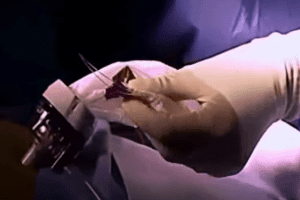
Power Morcellation Is No Longer The Procedure Of Choice. Power Morcellators Causing Cancer. After numerous studies the U.S. Food and Drug Administration (FDA) is warning that grinding up uterine tumors with power morcellation may spread cancer. As a result, doctors actually stopped using power morcellators. Since 1991, doctors and patients found the medical device to be a […]

Power Morcellation Is No Longer The Procedure Of Choice. Power Morcellators Causing Cancer. After numerous studies the U.S. Food and Drug Administration (FDA) is warning that grinding up uterine tumors with power morcellation may spread cancer.
As a result, doctors actually stopped using power morcellators. Since 1991, doctors and patients found the medical device to be a good option since it was minimally invasive with less recover time than traditional surgery.
As of 2014, however, studies began to show that power morcellators also grind up hidden tumors that may distribute cancerous cells throughout the body.
In 2016, a new study suggests that the probe launched by the FDA has paid off and widespread use of power morcellation is no longer the procedure of choice. A law passed by Congress in 1976 created the fast-track approval for new medical devices.
This law was used to the advantage of device manufacturers. In 2013, 99 percent of the 3,000 medical devices that were FDA approved, were fast-tracked to market. At least one panel at the Institute of Medicine has cautioned that the FDA’s fast-track guidelines are “insufficient to prove that medical devices are safe or effective.”
At least 10 power morcellator brands took advantage of these relatively lax laws in the early 1990s. But in 2014, the formal warning by the FDA declared, “If laparoscopic power morcellation is performed in women with unsuspected uterine sarcoma, there is a risk that the procedure will spread the cancerous tissue within the abdomen and pelvis, significantly worsening the patient’s long-term survival.”
Uterine cancer is relatively curable, as long as the cancerous cells remain within the uterus. However, when power morcellators grind up uterine tissue in routine hysterectomies, the possibility of undetected cancer cells spreading throughout the body can turn a potentially manageable cancer into a deadly one.
The new study reviewed more than 500 hospitals and 100,000 women finding that power morcellation had been used in 13 percent of patients in 2013, but only 3 percent in 2015. The study found no evidence of increased rates of complications, meaning without power morcellation, hysterectomies are as safe as ever, and likely a good deal safer.
The personal injury attorneys at Parker Waichman LLP offer free, no-obligation case evaluations. For more information, fill out our online contact form or call 1-800-YOURLAWYER (1-800-968-7529).


